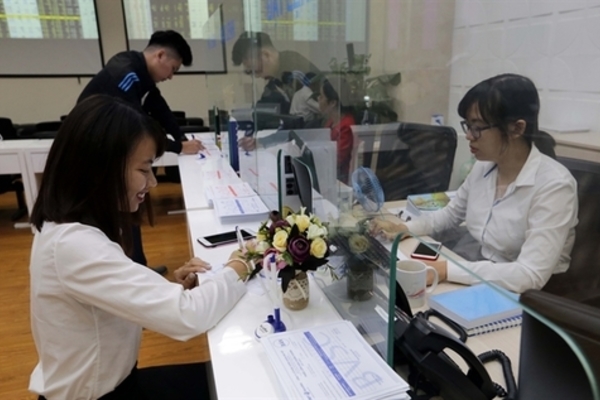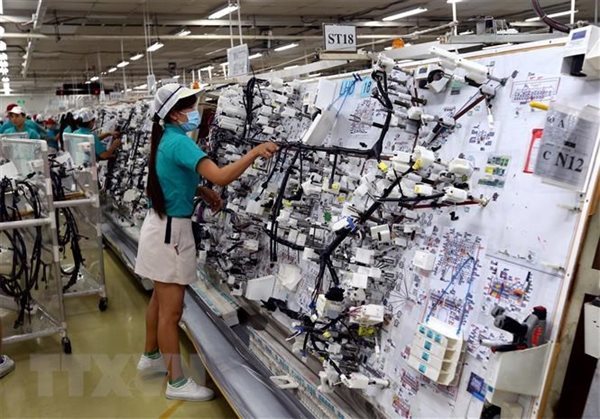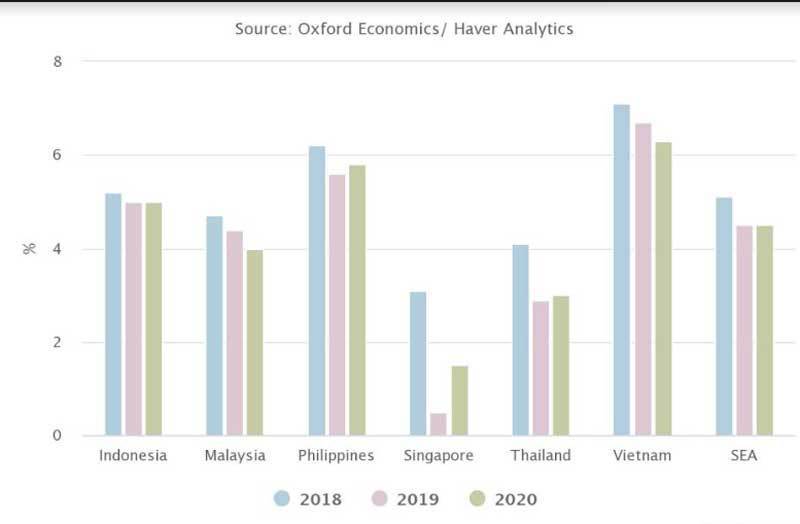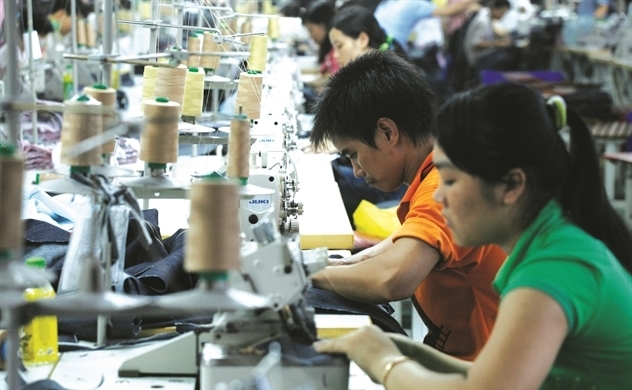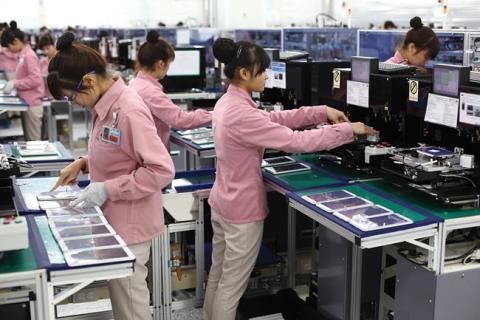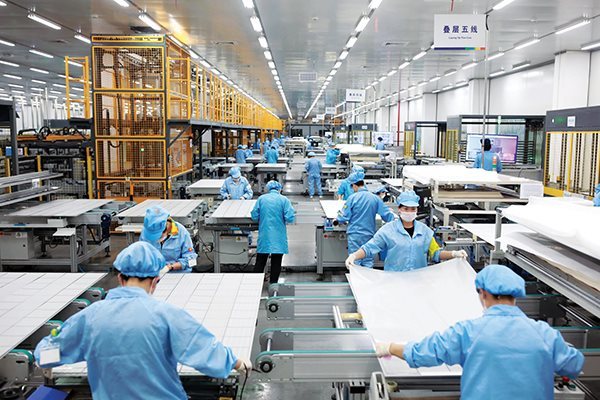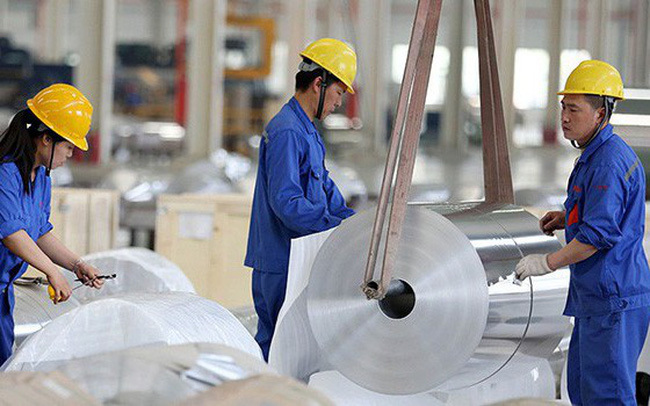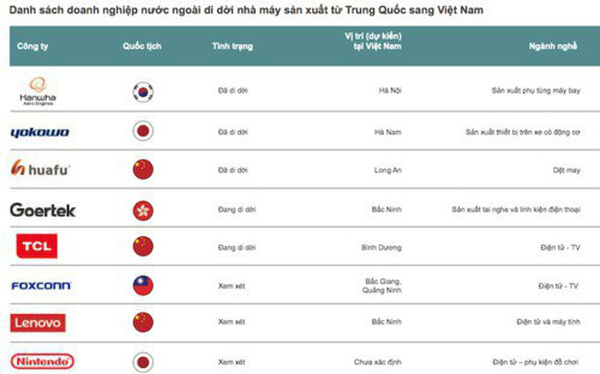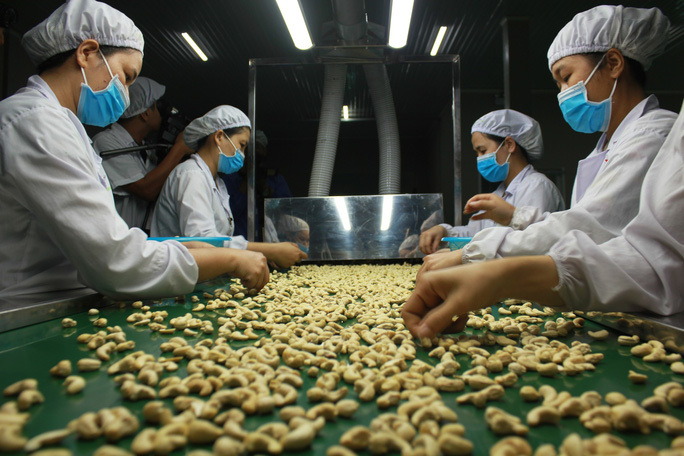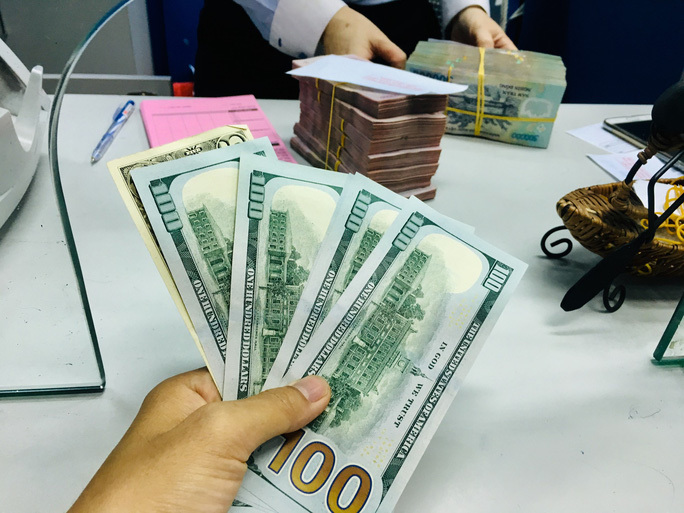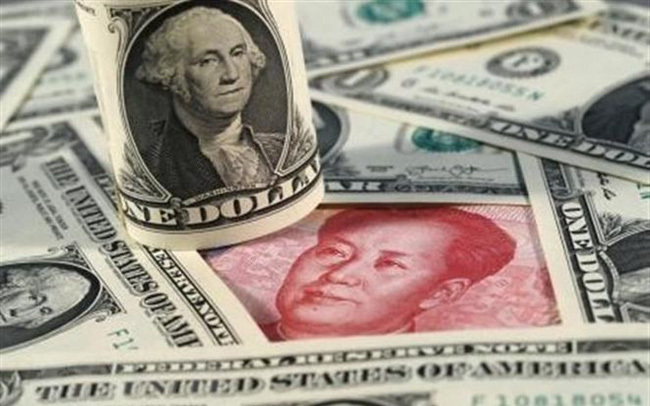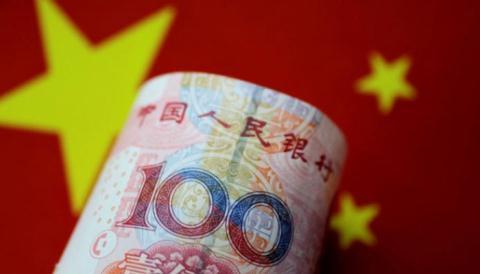- © Copyright of Vietnamnet Global.
- Tel: 024 3772 7988 Fax: (024) 37722734
- Email: evnn@vietnamnet.vn
trade war
Update news trade war
Trade war worries lifted, but market growth flat: analysts
 Concerns about the US-China trade talks have lifted for now, and investors are turning their attention to third quarter earnings reports and how listed companies will perform in the last three months of the year.
Concerns about the US-China trade talks have lifted for now, and investors are turning their attention to third quarter earnings reports and how listed companies will perform in the last three months of the year.
Vietnam worried as high-quality FDI declines
 The foreign direct investment (FDI) flow to Vietnam in the first eight months of the year did not increase as expected, but instead fell sharply.
The foreign direct investment (FDI) flow to Vietnam in the first eight months of the year did not increase as expected, but instead fell sharply.
Vietnam’s GDP growing well despite global tensions
 Vietnam is predicted to obtain the highest GDP growth rate in the region, but it is exposed to risks from the effects of global economic tensions.
Vietnam is predicted to obtain the highest GDP growth rate in the region, but it is exposed to risks from the effects of global economic tensions.
US importers reconsider orders of Vietnam’s garments
 Instead of getting benefits from the US-China trade war as predicted, Vietnam’s garment companies are meeting difficulties as US importers are reconsidering business with Vietnam’s exporters.
Instead of getting benefits from the US-China trade war as predicted, Vietnam’s garment companies are meeting difficulties as US importers are reconsidering business with Vietnam’s exporters.
Vietnam buying more materials from the US amid US-China trade war
 The US-China trade war is giving opportunities to Vietnam to diversify material supply sources, increase imports from the US to reduce the trade surplus with the country, and reduce the trade deficit with China.
The US-China trade war is giving opportunities to Vietnam to diversify material supply sources, increase imports from the US to reduce the trade surplus with the country, and reduce the trade deficit with China.
VN Central Bank cuts interest rate in cautious step
 Applauding the State Bank of Vietnam’s move to cut the prime interest rate, experts said the 0.25 percentage point cut, however, is relatively modest.
Applauding the State Bank of Vietnam’s move to cut the prime interest rate, experts said the 0.25 percentage point cut, however, is relatively modest.
Vietnam needs to new growth model to escape middle-income trap
 Building a reasonable growth scenario and finding out ways to achieve the goal is how that Vietnam can escape the middle-income trap.
Building a reasonable growth scenario and finding out ways to achieve the goal is how that Vietnam can escape the middle-income trap.
Where will manufacturers go if US-China trade war gets worse?
 Will Vietnam be chosen as the destination for investors who plan to move out of China?
Will Vietnam be chosen as the destination for investors who plan to move out of China?
Vietnamese manufacturers not afraid of cheap Chinese products
 One of the biggest risks posed by the US-China trade war is the flood of cheap Chinese products into Vietnam.
One of the biggest risks posed by the US-China trade war is the flood of cheap Chinese products into Vietnam.
Devaluing VND will do more harm than good: economists
 Chinese FDI is rushing into Vietnam, bringing huge capital. However, Vietnam has been told to be careful about using this capital.
Chinese FDI is rushing into Vietnam, bringing huge capital. However, Vietnam has been told to be careful about using this capital.
Industrial conglomerates leave China, head for Vietnam
 Foxconn (Taiwan), TLC and Lenovo (China), Hanwa (South Korea) and Yokowo (Japan) are relocating their factories to Vietnam as a shelter from the ‘storm’ of the US-China trade war.
Foxconn (Taiwan), TLC and Lenovo (China), Hanwa (South Korea) and Yokowo (Japan) are relocating their factories to Vietnam as a shelter from the ‘storm’ of the US-China trade war.
How will the US-China currency deal affect Vietnam’s exports?
 Businesses are optimistic about the prospects of the two largest export markets, the US and China, after the Chinese yuan for the first time fell from the ‘red line’ since 2008 to 6,9225 yuan per dollar.
Businesses are optimistic about the prospects of the two largest export markets, the US and China, after the Chinese yuan for the first time fell from the ‘red line’ since 2008 to 6,9225 yuan per dollar.
VND stable despite trade war escalation
 Most currencies have depreciated against the US dollar but the Vietnam dong value has remained stable.
Most currencies have depreciated against the US dollar but the Vietnam dong value has remained stable.
US-China trade war brings great opportunities, challenges
 Asked about influence of the US-China trade war on their business performance, Vietnamese enterprises said they can see opportunities, but find it difficult to grab them.
Asked about influence of the US-China trade war on their business performance, Vietnamese enterprises said they can see opportunities, but find it difficult to grab them.
Vietnam acts with composure amid yuan devaluation
 Since China is Vietnam’s biggest trade partner, the sharp yuan devaluation will affect Vietnam’s imports and exports with China.
Since China is Vietnam’s biggest trade partner, the sharp yuan devaluation will affect Vietnam’s imports and exports with China.
In trade war, FIEs in Vietnam get biggest benefits
 In the first half of the year, foreign invested enterprises (FIEs) saw an excess of exports over imports of $15.68 billion, while the domestic economic sector witnessed a trade deficit of $15.7 billion.
In the first half of the year, foreign invested enterprises (FIEs) saw an excess of exports over imports of $15.68 billion, while the domestic economic sector witnessed a trade deficit of $15.7 billion.
China yuan depreciation puts VND under pressure: experts
 A currency war could break out among a number of countries, Nguyen Tri Hieu, a finance expert told the press recently.
A currency war could break out among a number of countries, Nguyen Tri Hieu, a finance expert told the press recently.
Chinese FDI: Vietnam needs to assess carefully to prevent risks
 Saying that there is no discriminatory treatment to investment sources, experts have stressed that Vietnam needs a tool to ‘filter’ capital to prevent risks.
Saying that there is no discriminatory treatment to investment sources, experts have stressed that Vietnam needs a tool to ‘filter’ capital to prevent risks.
Can Vietnam benefit from US-China trade war?
 The figures about imports/exports and investments in the first months of the year show that Vietnam did not receive big benefits from the trade war as estimated by some US agencies and media. In fact, the risks remain high.
The figures about imports/exports and investments in the first months of the year show that Vietnam did not receive big benefits from the trade war as estimated by some US agencies and media. In fact, the risks remain high.
Experts predict FDI in Vietnam to speed up
 In the face of escalation of the US-China trade conflict, FDI to Vietnam will increase, with most of it coming from South Korea, China, Hong Kong and Taiwan.
In the face of escalation of the US-China trade conflict, FDI to Vietnam will increase, with most of it coming from South Korea, China, Hong Kong and Taiwan.
